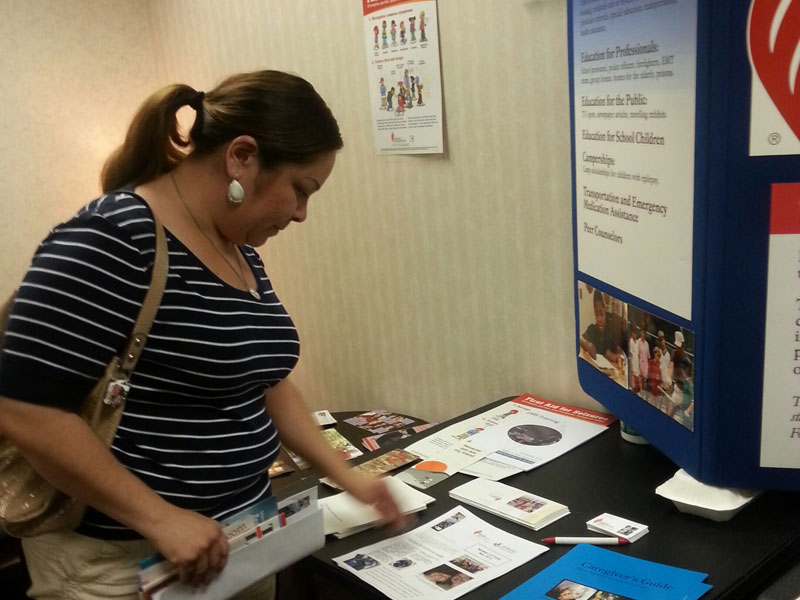Suzanne Bischoff, the director of the EF in Southeastern Virginia, hosted chats with people coming in to the small fair.
“Epilepsy carries so many social problems, like drivers licenses, issues with jobs and learning problems. The Epilepsy Foundation works closely with doctors on these non-medical issues,” she says.
The EF works to offer resources, like information about doctors, legal concerns and support groups, which they offer throughout Hampton Roads. They also offer an online support group for teens.
For the approximately 25% of people who have epilepsy with uncontrolled seizures (which means they continue to have seizures despite taking medication,) seeing an epileptologist is highly recommended. Valerie Ware, an EF member from Virginia Beach who attended the fair, says that specialist made all the difference for her.
“I started having seizures when I was 12, and saw a neurologist for 25 years, but was not as controlled as I could be. Once I worked with an epileptologist, he monitored my brain and then we figured out the best way to treat me. I’ve been seizure free for three years now,” she says.
For Ware, knowing that her doctor studied epilepsy was important. “When you look for a neurologist, ask ‘What did they study?’ because it could be Alzheimer’s or dementia…but you want one who studied epilepsy, then you can find the one for you,” she says.
Today, Ware, 36, is going back to college, a pursuit she gave up when she was having active seizures. “It took me a long time to accept that I had this. But the more you know, the better you can handle it. Even though I’m doing well, I have to get knowledge,” she says.
Patty Hood, regional director for the Epilepsy Foundation in Hampton Roads, was present to answer questions from guests. She feels that the biggest issue for people with epilepsy is social stigma. “People are embarrassed and don’t want to tell others because they are afraid. Despite the fact that they live and work and have wonderful lives, there are still some hardships to face. They need support and understanding,” she says.
Hood says that when a person is first diagnosed with epilepsy, they often feel like “their world collapsed.” She attended the fair to offer support and raise awareness, and to let people know they have someone to talk to. Hood says support in facing the diagnosis can help people get through it, and then working with their doctors can give them tools to get their seizures better under control.



